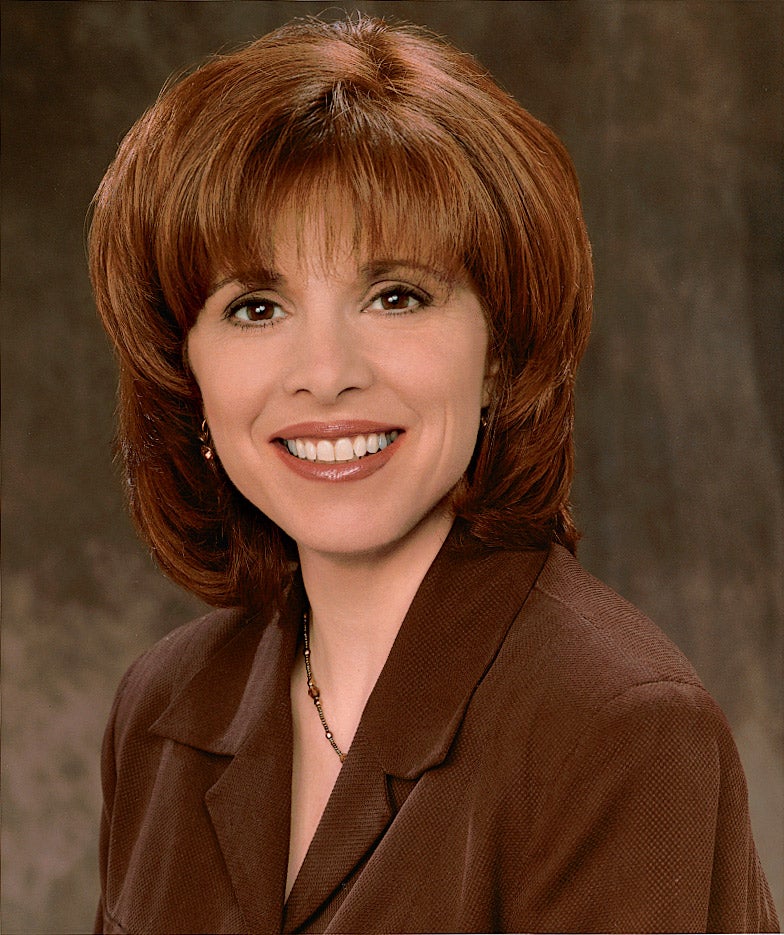When Court TV went on the air in 1991, June Grasso ‘ 77 anchored one of the first reports live from the field: a negligence case in Massachusetts involving the manufacturer of an all-terrain vehicle. “At that point, we didn’t even have playback monitors to show what you looked like,” she recalled. “You were pretty much on your own and had to work through whatever came up.” A television veteran who honed her skills at stations in New York and Hawaii, Grasso went on to cover trials at Court TV involving high-profile defendants such as the Menendez brothers, Timothy McVeigh and talk show host Jenny Jones; at the same time, she worked as a legal analyst for ABC Radio, where her first assignment was the O.J. Simpson trial.
“Radio is so freeing,” said Grasso, who left Court TV in 2001 to host “The Bloomberg Money Show” on Bloomberg Radio. “There’s no camera–you can really be yourself, and so can the people you interview.” Airing for two hours every weeknight, the nationwide call-in show covers personal money matters as well as the financial news of the day. “A lot of money issues are also legal issues, like identity theft and prenups,” said Grasso, adding that corporate malfeasance has made the intersection of business and the law of even greater interest to her audience.
After leaving HLS, Grasso practiced communications and media law and realized she was more interested in the work of the television producers who were her clients. To the surprise of admissions officers at Columbia’s Graduate School of Journalism, she left her lucrative job to study in a notoriously low-paying field. But for her it paid off, with some memorable interviews highlighting her career, such as one with Larry Flynt. “Often, public personalities aren’t real in their responses,” said Grasso. “What they say sounds canned. He was so honest about everything in his life.” For a different reason, Tonya Harding too made an impression. Confronted by a question she didn’t like, the disgraced ice skater demanded that the television camera be turned off (the crew complied), tore off her microphone and left the set.
Celebrity encounters aside, the satisfaction of breaking down legalese so that the average person can understand how the system works has been the real motivation behind Grasso’s journalism career over the past 20 years. At Court TV, she developed and hosted “Legal Cafe,” another call-in program that took questions from viewers across the country on topics as varied as landlord-tenant disputes, medical malpractice and adoption.
“There’s this hatred of lawyers out there, but every time someone needs help, it’s the lawyer they go to,” Grasso said. “Working on ‘Legal Cafe’ was a very rewarding experience because you felt like you were helping people grapple with the issues that mattered to them.”
The same is true at Bloomberg, where Grasso says she’s brushed up on her knowledge of finance’s finer points by taking courses on topics such as municipal bonds. Hosting a money show at a time when the economy is shaky is challenging, she notes, but that makes an open, informative discussion more important than ever. “In tough times, there’s more at stake,” she said. “People want to know where to put their money.” Wary listeners also want to know what is being done to prevent more Enron-style scandals, she added. “It isn’t as happy-happy as it would have been if we’d done the show during the boom market,” she said. “But if you have a good dialogue between the host, the guest and the callers, a show can be interesting no matter what.”
